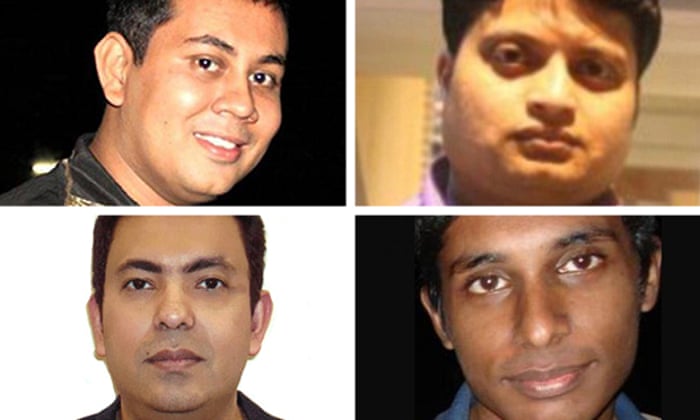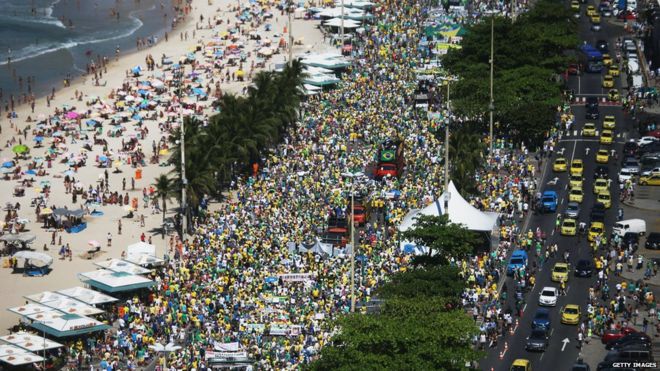|
|
|
|
|
By Christine Khamis
Impunity Watch Reporter, Asia
DHAKA, Bangladesh –
Three men believed to be involved in the murders of secular bloggers in Bangladesh were arrested during a raid in Dhaka on Monday.
Four secular bloggers have been killed this year, including Avijit Roy and Ananta Bijoy Dash, who wrote for a website called Free Mind. Mr. Roy spoke out against religious extremism and formed a network of atheist bloggers in Bangladesh and abroad. Both Mr. Roy and Mr. Dash were hacked to death by machete.

Commander Mufti Mahmud Khan, spokesman for Bangladesh’s Rapid Action Battalion, a police unit, stated that the three suspects are believed to be members of the Islamic organization Ansarullah Bangla Team, which has been banned in Bangladesh. The group was banned in May after it was accused of threatening and killing bloggers and writers.
Muhammad Jasimuddin Rahmani is the leader of Ansarullah Bangla Team. He is currently in prison for his murder of another blogger, Ahmed Rajib Haider, in 2013. It is believed that one of the suspects arrested in Monday’s raid, Sadek Ali, visited Mr. Rahmani in prison to receive instructions for the bloggers’ murders.
Another of the accused men, Tawhidur Rahman, is a British citizen of Bangladeshi origin. He moved back to Bangladesh in 2012 and joined Ansarullah Bangla Team because he was inspired by Mr. Rahmani’s philosophy. Mr. Rahman is believed to have planned the killings of Mr. Roy and Mr. Dash.
The third suspect, Aminul Mollick, worked at a passport office and made fake passports so that members of the Ansarullah Bangla Team could leave the country if needed.
Bangladeshi authorities have been criticized for their failure to prevent the killings and for their slow place in their investigation of the killings. Imran H. Sarker, head of the Blogger and Online Activist Network in Bangladesh, has stated that many are wondering whether the government is supporting the criminals killing the bloggers. Bangladesh’s top police official has denied accusations that police officers sympathize with the killers and are purposely delaying their investigations of the murders.
About a decade ago, a group of mostly atheist Bangladeshi bloggers started speaking out against Islamic and other religious groups online. While the bloggers became popular with secular Bangladeshis, their online posts drew the anger of the Muslim population in Bangladesh.
While most Bangladeshis are Muslims, Bangladesh is ruled by laws based on British common law. Religion-based political parties in Bangladesh have sought the establishment of blasphemy laws to protect their faith, while bloggers have called for those parties to be banned.
In 2013, Hefajat-e-Islam, a body of Islamist groups, submitted a list of 84 atheist bloggers to the Bangladeshi government, demanding their arrest and trial under blasphemy laws. Hefajat-e-Islam also set in motion mass protests calling for the execution of those bloggers, and attacks against the bloggers began occurring.
In the past two and a half years, five atheist bloggers and five secular activists have been killed in similar machete attacks in Bangladesh.
For more information, please see:
Al Jazeera – Bangladesh Arrests Suspects in Blogger Murders – 18 August 2015
The Guardian – Bangladesh Arrests Three Men Including Briton Over Murders of Secular Bloggers – 18 August 2015
The New York Times – Bangladesh Arrests 3 Men in Killings of Secular Bloggers – 18 August 2015
Voice of America – Bangladesh Blogger Killings Highlight Dangers of Speaking Out – 14 August 2015
By Kaitlyn Degnan
Impunity Watch Reporter, South America
BRASALIA, Brazil – Brazilian President Dilma Rousseff is struggling to maintain support amidst calls for her resignation following the conviction of Petrobras officials for organizing bribes to members of the Brazilian government in exchange for Korean contracts, paid out in funds stolen from the indebted oil company. Both the senate and the lower house are being investigated in the wake of the kickback scandal.

Rousseff served as chairwoman of Petrobras’ board in 2010, before her election to president and at the height of the kickbacks. Although she has officially been exonerated, many insist that she had to have had knowledge of the scheme. She has also been accused of receiving illegal contributions for her campaign, and that her government has misused state money to cover budget gaps.
President Rousseff has insisted that she will not resign.
Brazilians in past days have taken to the streets in protests, with many calling for the impeachment of President Rousseff. Protests drew thousands in Sao Paulo, Brasilia and Copacabana beach in Rio. The latest numbers list nation-wide support for the President to be as low as single digits (about 8 percent). Two out of three Brazilians surveyed think that Rousseff should be impeached, and her approval rating is currently the lowest of any Brazilian president since the end of military rule.
Protesters calling for impeachment do so despite the almost guaranteed instability that would follow. Pedro Lopes Siqueira, a public servant from Rio participating in the protests told the New York Times: “Impeachment would be momentarily destabilizing, but it’s allowed in the Constitution, and it needs to happen.
Some have even declared that they would welcome a military intervention as opposed to what is perceived by some as a highly corrupt government. Brazil recently celebrated 30 years since the end of the military dictatorship in March of this year.
This comes at a time where the Brazilian economy is struggling due to uncertainty and political corruption. Moody’s Investors Service reported that the Brazilian economy will contract about 2 percent this year. Businesses from motor vehicle manufacturers to small businesses and family owned restaurants have felt the effects of the economic downturn.
Business owners around the country have expressed concern regarding the potential repercussions if Rousseff is impeached – which will likely include a period of economic instability. Although business leaders and Rousseff historically have a rocky relationship, many have come out as unlikely allies of the president. “An impeachment is a traumatic affair that affects the political and business arena at a time when Brazil is struggling to regain its credibility abroad,” according to Alencar Burti, president of the Sao Paulo state Federation of Chambers of Commerce. The group represents 200,000 business owners in the area. They would be more in favor of some sort of economic deal.
Industrial groups and the media have also called for a deal to ensure stability.
For more information, please see:
BBC – Brazilian protesters call for President Dilma Rousseff’s impeachment – 17 August 2015
Bloomberg Business – Brazil’s Political Crisis Puts the Entire Economy on Hold – 17 August 2015